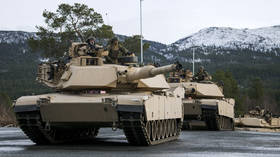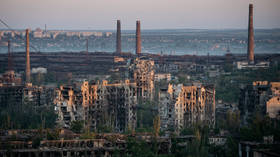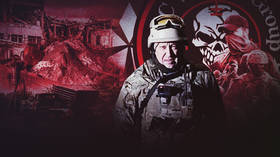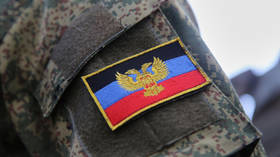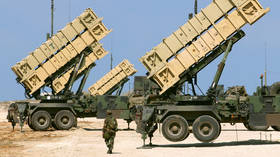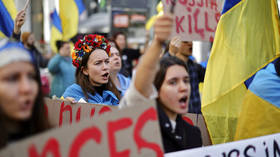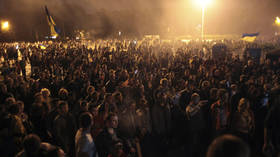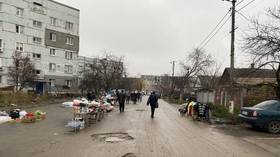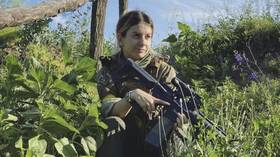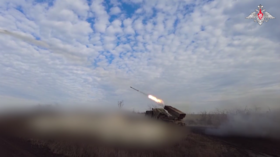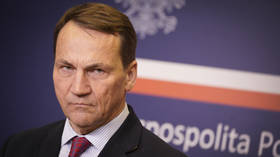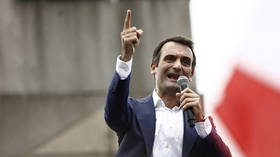'This conflict will fundamentally change Russia': A young Muscovite explains why he volunteered to fight Ukraine
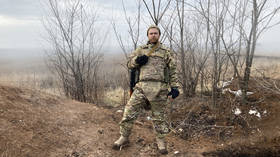
Russia’s offensive in Ukraine has been ongoing for almost a year, and during that time many have come to see it as a war of liberation. People have headed to the front as volunteers, often without combat experience, leaving comfortable lives and career prospects behind. One such volunteer is Nikita Vlasenko-Irsetsky, a native Muscovite. Just a year ago, he was a successful product manager at an IT company, writing plays in his spare time and staging them in his home theater with friends.
In an interview with RT, Nikita told what encourages young Russian men to fight in the conflict, explained how the Donbass militia differs from the regular Russian Army and private military companies (PMCs). He also told how the current struggle resembles ancient wars, and speculated on how he and his comrades-in-arms could change Russia for the better after their victorious return home.
On His Decision to Go to War
RT: Workers in the IT field are often viewed as progressives, with anti-war views. Why did you go to war?
Nikita Vlasenko-Irsetsky: I seriously considered going to Donbass eight years ago, when the conflict had just begun. At that point, I’d been discharged from the Russian Air Force after military service and had entered university, but I still seriously considered joining the Donbass militia. At that time, I decided I was still too young and had too many family obligations, and therefore needed to get a higher education first. Over the years, the conflict faded and it became clear to me that they could do without me. I was an ordinary Moscow IT specialist, and there were enough experienced military personnel already there.
On February 24, 2022, a new round of this conflict began. At first, I was eager to go to the front as a war correspondent. I assessed my capabilities and the benefits I could bring: I can write; I’m not afraid of going to the front; I have some kind of military experience; and I empathize with the Russians of Ukraine, who have been fighting for their independence and the right to be Russian for eight years now. I made a rather impulsive trip but couldn’t cross the border between Russia and the DPR [Donetsk People’s Republic] due to coronavirus restrictions. The impulse passed and I eventually decided it was better to prepare myself and make a more rational decision about my role in this conflict. At the end of June, I realized it was necessary to volunteer for the army.
– But in 2014, you felt that you didn’t need to fight in this conflict. Why did your opinion change?
– The situation is different now. In February, it seemed that the Russian leadership had finally come to the conclusion that the Ukrainian issue needed to be resolved abruptly and definitively. It was impossible for me to stay away. Well, there was also a personal factor: when I’m making important decisions, I like to project myself into the future and imagine how I’d feel then, in light of what I’ve done now. And I realized that if I didn’t join this ‘Reconquista’, I’d have little respect for myself in the future, to put it mildly. And the rest was just details.
– And you didn’t see any other role for yourself other than a serviceman?
– Starting in June, no. Before that, I still had thoughts of becoming a war correspondent or humanitarian aid worker. And then somehow, I warmed to this idea of becoming a soldier and began to prepare.
My friend and I bought a drone and started traveling to Moscow Region. We drove to some remote station and then walked into the woods. We invented combat missions for ourselves: reconnaissance and so forth. We flew the drone over neighboring villages and marked them on a map. When I had more or less learned how to control a drone, I went to Donetsk for a while and asked to join some local volunteer organizations, explaining that I planned to volunteer as a UAV operator and needed to get some practical experience. Along with them, I delivered all sorts of useful things to the combat units.
Then I lucked out: I managed to go to the front near Ugledar for three days and work with a drone there. I got a taste for the job and realized that I liked it and wanted to do it. Moreover, I became confident that I could do it very well because I’m sufficiently versed in IT, drones, and firmware, and am in good physical shape. So, I needed to collect my equipment and volunteer. Especially then, it seemed to me that the conflict would end soon, and I needed to hurry, but at the same time, I wasn’t in a rush. Assault troops could recruit people with skills that I don’t have, but operating UAVs looked like a specialization where my skills would be valuable.
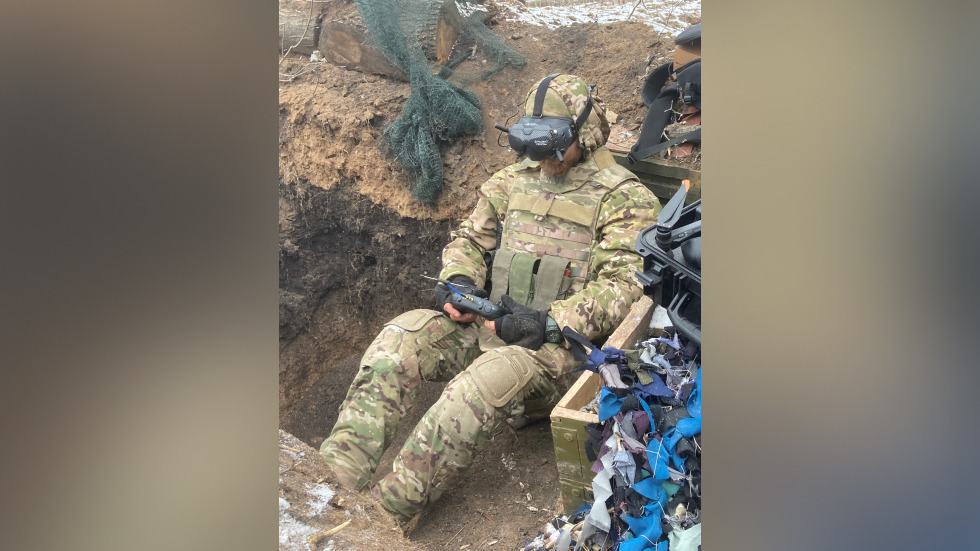
On choosing where to serve
– Why did you decide to volunteer for the People’s Militia of the DPR, and not the Russian Armed Forces?
– Until last year, the Russian Armed Forces weren’t taking part in the conflict in Donbass. Up until February of 2022, it was a peacetime army. And in many ways, the Russian Armed Forces are still a peacetime army, even after several months of hostilities. Yes, the people’s militias of the republics of Donbass have their disadvantages. There are problems with technical equipment and supplies, but they have extensive combat experience. All the personnel – from privates to officers – understand that there’s a war going on.
Looking back on my experience serving in the Russian Army, I realized that during combat it’s better to have a bad commander of a wartime army than a good commander of a peacetime army. And, of course, vice versa if there’s no fighting.
In short, I realized it’s better to serve with those who have fewer weapons but a sounder understanding of the situation. Moreover, with the limited resources available to the people’s militias, these resources are used more judiciously. The people’s militias cannot physically afford to undertake rash maneuvers. Commanders who made decisions like that perished long ago.
– And why didn’t you consider serving in a PMC, for example, the Wagner Group?
– I thought about it, but then a certain ideological issue arose. Personally, I wanted some continuity with the centuries-old history of the Russian Army. Wagner is a new model. In addition, I wouldn’t really like to serve in a PMC from an epistemic, aesthetic, or ethical point of view (even though they are top-class professionals). Though this option held significant advantages, I still didn’t want to go to the ‘condottieri’. I joined the army, among other things, to gain some kind of honor, and this can only be done as part of the regular corps, even if it’s in the people’s militias. They have genuine prospects of coming under the jurisdiction of the Ministry of Defense. Wagner will always remain in the shadows, relatively speaking.
– How did you choose a specific unit within the People’s Militia of the DNR?
– A summer trip and a connection with the OPSB foundation [a volunteer organization that helps supply military personnel in Donbass] helped. During my visit in July, I worked with Vladimir Grubnik, helping him with humanitarian aid. Working with the OPSB in Donetsk, you get to know a lot of people from different units. I made a lot of useful contacts and acquaintances, carefully observed people, and gained an understanding of what conditions you’d find in which units. There’s no uniformity here.
Several options appeared quite quickly that later became specific proposals. So, I became an unofficial UAV instructor with one of the regiments of the People’s Militia of the DNR. I just trained fighters and taught them what I knew for about a month and a half. At that time, I was not even close to being a combat veteran and had no experience in the wider deployment of drones. All my experience boiled down to performing a number of reconnaissance tasks. I was more of a civilian in uniform who was well versed in drones and could explain how they worked to others so that they wouldn’t break them. And my students received combat experience on their own.
It all went well, so I was offered a position and signed a contract. I explained to the commanders that, in order to improve my skills as an instructor, I needed a combat job that would allow me to gain more experience to pass on to recruits. They fully approved, so now I alternate between teaching and fighting.
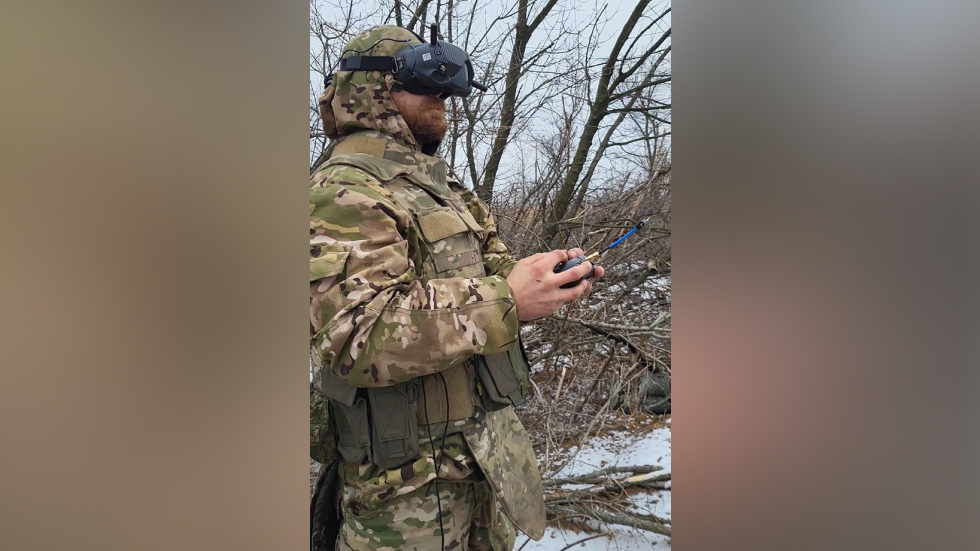
On modern warfare
– Lately, states have been moving away from the idea of large armies making war a job for professionals. This conflict, however, is different. Many people without a military background (yourself included) volunteered right from the start, and a mobilization campaign followed. Given your experience, do you think war is a matter for professionals or every citizen’s duty?
– I like to say that the conflict between Russia and Ukraine is very similar to ancient wars. Only helots [poor peasants heavily dependent on the state] and those who can sell a hundred cows to buy personal weapons and armor (if you want to be an effective fighter, of course) can afford to take part in this war. I think we’re moving back to a more classical concept of war. A warrior is really an essential profession, and it would make much more sense if fighting is left to those who are inclined towards it, not mobilized guys aged 18 or 20. Warriors should be mature men who’ve come to realize that it is their calling.
Right now, however, we’re at an inflection point where different ages are coming together. All at once, we’re seeing mobilized civilians, ‘condottieri’ from private military companies, ancient Spartans, who sold all their possessions to buy a hoplon (shield), a spear, and a xiphos (shortsword), and regular army formations. It’s a transitional period, rather eclectic in terms of military thinking. I believe the 21st century will witness a transition towards a different format that won’t rely on such large armies. Metaphorically speaking, the armed forces will have a lower proportion of protein and a larger proportion of nonferrous metals. This time is yet to come though, and right now, we’re seeing what we’re seeing given the current level of technology and demographic situation.
I personally think that the eclectic nature of the ongoing conflict makes it more fun. I like to observe things from two angles, as it were – as myself and as an onlooker, and this latter point of view gives me grounds for a bit of irony. We’re finding ourselves amid temporal and ideological chaos, but you have a gut feeling that our victory is inevitable and that what we’re doing is right. When I say “we,” I mean soldiers because political decisions are sometimes hard to explain, and it’s not up to me to comment on them anyway. But the people I meet here, in this war, don’t care much about these issues. Our people’s militias have an inexhaustible supply of fighting spirit, these guys just can’t retreat. They’re not fighting for some overseas colonies, it’s not a matter of playing an exciting military game. Everyone knows that, if they back down today, their families will be killed or abused. Nobody harbors any illusions.
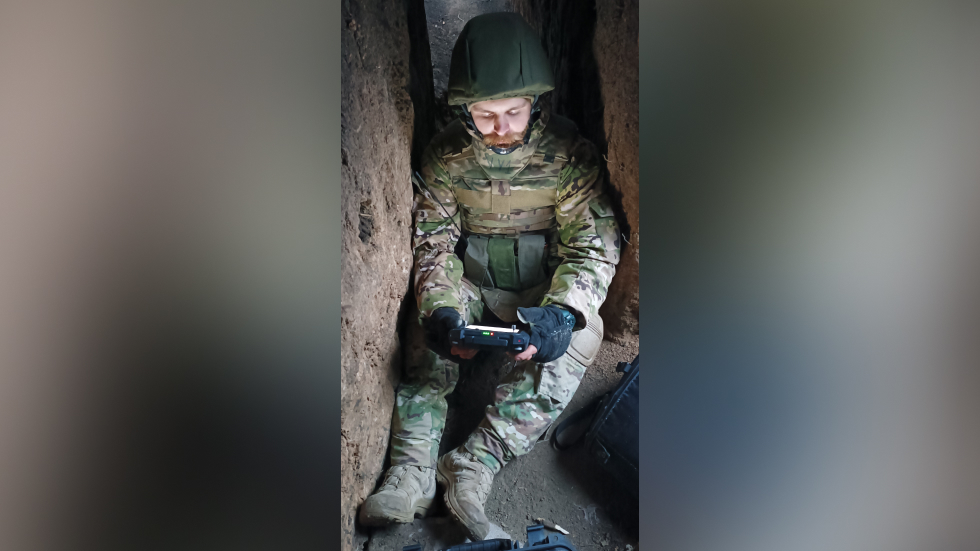
On colleagues who fled Russia
– Many of your colleagues in IT left the country after the military operation began. Why do you think they did that?
– This is a very complex question. What you need to understand about IT is that it’s actually a highly specialized and inward-looking community. You don’t see the big picture or at least don’t make an effort to see it. Information technology is about improving efficiency, so people in this line of work prefer ideology to be served to them on a plate. Lots of my peers (and younger people, too) are rather susceptible and naive, they’re easy to convince.
Over the last hundred years, our state has enjoyed a monopoly on narratives, so its methods of conveying information have grown crude and primitive no matter what political regime is in power at any given time. Our domestic media are very low-tech and can be challenged even by individuals, let alone foreign states employing channels of soft power.
It’s true that a large amount of my colleagues have fled and scattered around the world, and it’s not clear what they are going to do. The status of an immigrant is by default a lowly one. You’re a stranger who has given up his culture for an alien one. Those who fled (and that’s where their naivety shows) voluntarily abandoned their country at a dangerous and trying time and ran to foreign states, mostly poorer ones and with cultures that are not complementary to their own culture. I feel really sorry for them. I think my future in my home country is much brighter than theirs. I wake up in the morning these days feeling that I know what I live for and being fully aware of doing a noble deed, protecting my people, and it gives me strength. It doesn’t matter what inconveniences I may have to put up with at the moment or what challenges and dangers I’m facing. At the end of the day, I know why I’m here and what I’m fighting for. Which is more than I can say about the guys who left.
I keep in touch with colleagues who fled Russia even though I feel alienated from them. We chose very different and to a certain degree opposing paths. People make their own choices, and I’m entitled to my subjective opinion about their departure. That said, there are nuances to consider. Some left because they were afraid of mobilization, and the reason they were afraid is that they are not warriors. I can understand these people. But still, they ran away.
It's a different story when people all of a sudden begin to badmouth their own motherland. I think it shows them as people who were fooled and indoctrinated by other centers of power. I’m not pretending to be “above the fray” here, I’m fighting in a war and I’m a target of propaganda too, but let it be my propaganda. After all, I’m an educated big-city guy who can analyze information and figure out on his own what’s worth fighting for in this war and against whom. And I’m not talking about the war that started in February 2022, I’m talking about the one that started on May 2, 2014, when Ukrainians were burning people alive in Odessa.
I prefer to be with my own kind as we make mistakes and celebrate triumphs. That’s better than being some kind of dandelion scattered around the world, living in some strange, confusing cultures, and struggling to make at least some sense of one’s status and future prospects.
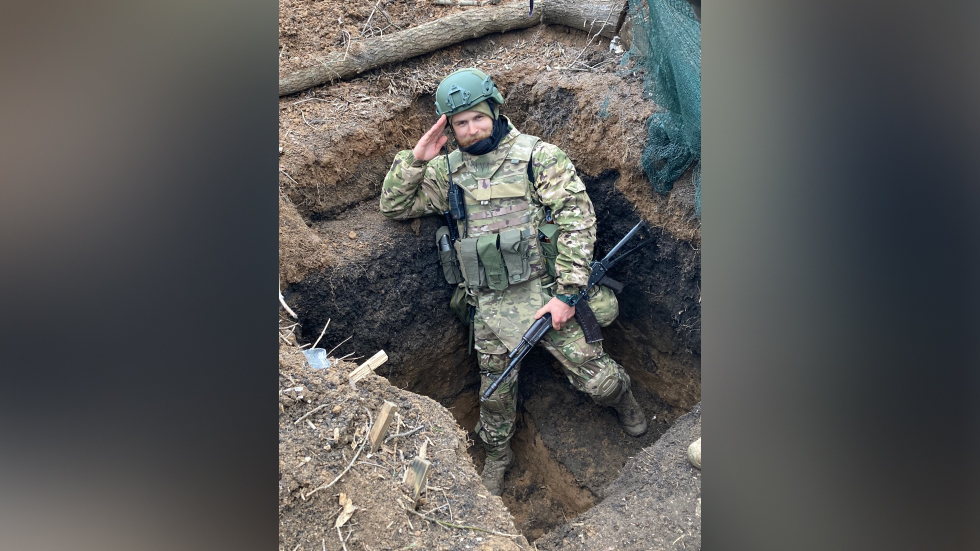
On hatred in times of war
– Have you changed your attitude to the enemy during your time here?
– What I’ve noticed is that the farther away you get from the frontlines, the more bloodthirsty everyone is. Let me explain. I’ve been following the developments since the very start of the SMO [Special Military Operation]. I looked at German-speaking, English-speaking, Ukrainian, and Russian outlets, I monitored Telegram channels, trying to get as much information as possible. Understandably, it does skew your perception, which is what happened to me during the first few weeks.
But now that I’m here, I no longer need to emphasize my hatred of the enemy, call him names, or engage in other kinds of fist-shaking. This is what people do out of helplessness as an attempt to justify their inaction. You’re living your life away from the frontlines but, every night, you like to switch gears for half an hour and chat online about how you hate those “Ukrainian pigs,” “Ukronazis,” etc. When you’re on the battlefield, you don’t have time for petty ambition. You’re here, you’re at war, you’re doing everything that’s in your power. You don’t have to convince yourself that you’re involved because it’s obvious. And you don’t need any verbal outbursts to anchor your involvement. You just know that, yes, there’s an enemy out there. As a rule, no one insults the enemy, sometimes people use expletives, but these are not ideology-driven.
Once, we were supporting an attack by dropping grenades from UAVs. It was morning, the enemy didn’t expect drones at all. One of our guys hit three people with a fragmentation round [a 30×29 grenade used as ammo for the AGS-17 Plamya automatic grenade launcher], they fell like dominoes and started writhing on the ground. Our guy was happy, but only because it was a job well done. Here, no one’s trying to humiliate the enemy verbally because there are other means. If you know how to use them – use them.
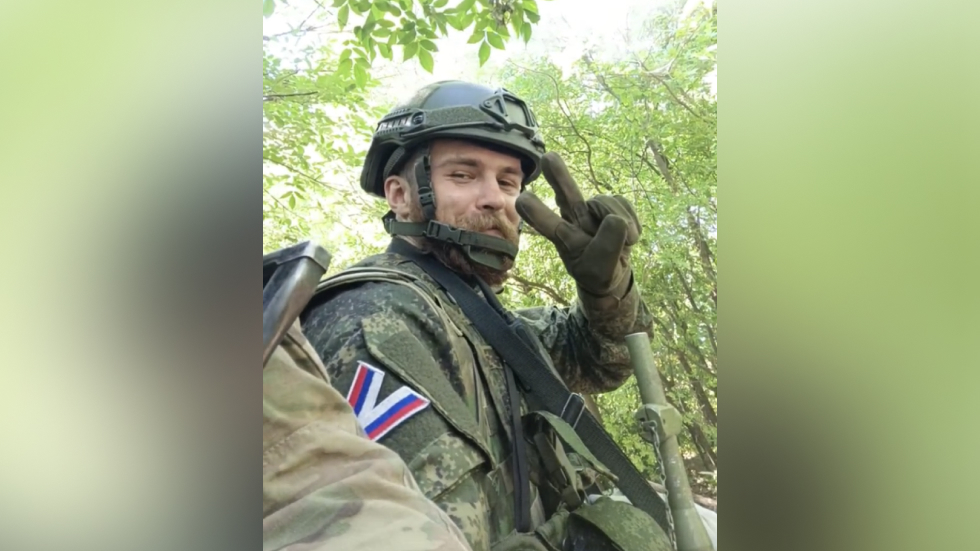
On what the future holds
– What would constitute victory in this conflict for you?
– Personally, I decided that I would go on fighting until the Armed Forces of Ukraine and all those who took up arms and have been fighting Russians for almost nine years are no longer a threat. Routing this army will be the foundation of our victory.
– When this war is over, many veterans will return home. How will they change Russia?
– There are two ways this word is understood in Russia. Historically, a veteran is a guy in his 50s who’s close to retirement but is still in the army. He has experience, which he shares with younger people. We’ll have quite a few veterans like that after this conflict. The inevitable growth of the number of veterans is just one of the fundamental changes we can expect in the future.
There’s also our civil society, which has been helping the army. I used to think that all those volunteer organizations collecting their meager donations were just a drop in the ocean as opposed to what one signature in a high place can accomplish. I didn’t take them seriously. But last July, when I had a chance to work with the OPSB in Donetsk, I realized what a huge financial stream those individual donations formed together and what a long way capable volunteers could make it go. Smart financial management on the ground and motivated people like Vladimir Grubnik are a formidable force.
Civil society right now is much more efficient at equipping soldiers than the Defense Ministry. People have learned to resolve issues where the government is stalled. A huge number of horizontal links have emerged during the conflict. This is a positive development which may not be obvious at first sight, but is more important than all the captured cities. So, talking about change in Russia, I’d focus not just on veterans but also on this nascent civil society, which was all but destroyed during Soviet times.
